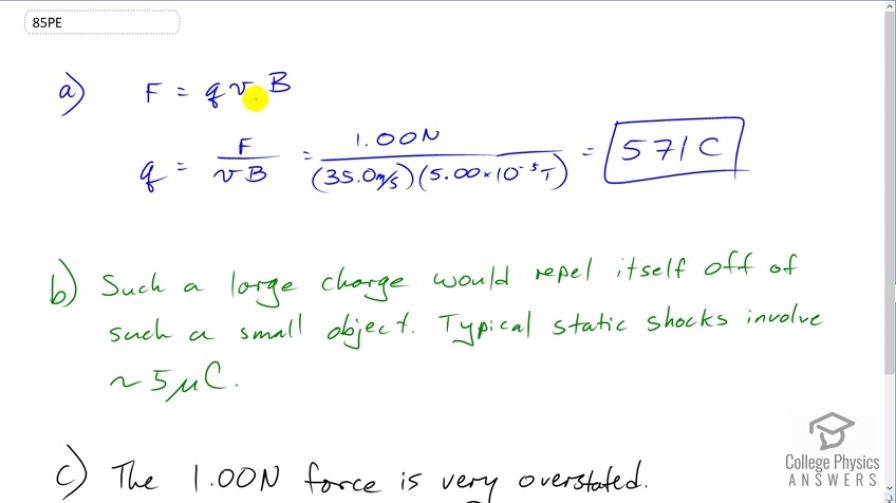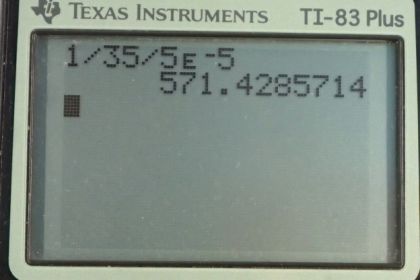Question
(a) Find the charge on a baseball, thrown at 35.0 m/s perpendicular to the Earth’s field, that experiences a 1.00-N magnetic force. (b) What is unreasonable about this result? (c) Which assumption or premise is responsible?
Final Answer
- Such a large charge would repel itself off of such a small object. Typical static shocks involve
- The force is very overstated.
Solution video
OpenStax College Physics for AP® Courses, Chapter 22, Problem 85 (Problems & Exercises)

vote with a rating of
votes with an average rating of
.
Calculator Screenshots
Video Transcript
This is College Physics Answers with Shaun Dychko. The force on this baseball is found using F equals the charge times the baseball speed times the magnetic field strength, and we can solve for q by dividing both sides by VB. So q is F over VB. So that’s one Newton divided by 35 meters per second times five times ten to the minus five Tesla, which gives 571 coulombs. Now such a large charge would repel itself off of such a small object, and it’s a very big number. Typical static shocks involve about five microcoulombs which is a piece of information I found from Wikipedia. So the one Newton force is very overstated and the baseball will likely experience a force much much less than that.
